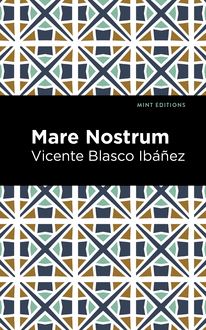-
 Univers
Univers
-
 Ebooks
Ebooks
-
 Livres audio
Livres audio
-
 Presse
Presse
-
 Podcasts
Podcasts
-
 BD
BD
-
 Documents
Documents
-
- Cours
- Révisions
- Ressources pédagogiques
- Sciences de l’éducation
- Manuels scolaires
- Langues
- Travaux de classe
- Annales de BEP
- Etudes supérieures
- Maternelle et primaire
- Fiches de lecture
- Orientation scolaire
- Méthodologie
- Corrigés de devoir
- Annales d’examens et concours
- Annales du bac
- Annales du brevet
- Rapports de stage
La lecture à portée de main
Vous pourrez modifier la taille du texte de cet ouvrage
Découvre YouScribe en t'inscrivant gratuitement
Je m'inscrisDécouvre YouScribe en t'inscrivant gratuitement
Je m'inscrisEn savoir plus
Vous pourrez modifier la taille du texte de cet ouvrage
En savoir plus

Description
The Ladies’ Delight (1883) is a novel by French author Émile Zola. The eleventh of twenty volumes of Zola’s monumental Les Rougon-Macquart series is an epic story of family, politics, class, and history that traces the disparate paths of several French citizens raised by the same mother. Spanning the entirety of the French Second Empire, Zola provides a sweeping portrait of change that refuses to shy away from controversy and truth as it gets to the heart of heredity and human nature. At the age of twenty, Denise Baudu moves to Paris with her brothers and finds work at “Au Bonheur des Dames,” a new department store owned by eccentric entrepreneur Octave Mouret. There, she grows accustomed to 13-hour days, inferior food and housing, and the constant grind of thankless labor. Despite her circumstances, she soon finds herself attracted to Mouret, a notorious womanizer whose exploitative business practices have alienated him from employees and local businesspeople. Mouret’s ambition and innovation have led him to corner the market on textiles, womenswear, furniture, and household goods, infuriating his competitors and driving smaller shops into bankruptcy. Until Denise, he has avoided tying himself down to another, intent on building a fortune for himself without the interference of family. Innocent at first, she soon learns how to manipulate Octave to do her bidding. The Ladies’ Delight is a story of family and fate, a thrilling and detailed novel that continues a series rich enough for its author to explore in twenty total volumes. With a beautifully designed cover and professionally typeset manuscript, this edition of Émile Zola’s The Ladies’ Delight is a classic work of French literature reimagined for modern readers.
Sujets
Informations
| Publié par | Mint Editions |
| Date de parution | 21 mai 2021 |
| Nombre de lectures | 1 |
| EAN13 | 9781513287140 |
| Langue | English |
Informations légales : prix de location à la page 0,0500€. Cette information est donnée uniquement à titre indicatif conformément à la législation en vigueur.
Extrait
The Ladies’ Delight
Émile Zola
The Ladies’ Delight was first published in 1883.
This edition published by Mint Editions 2021.
ISBN 9781513282121 | E-ISBN 9781513287140
Published by Mint Editions®
minteditionbooks.com
Publishing Director: Jennifer Newens
Design & Production: Rachel Lopez Metzger
Project Manager: Micaela Clark
Translated By: Ernest Alfred Vizetelly
Typesetting: Westchester Publishing Services
C ONTENTS I II III IV V VI VII VIII IX X XI XII XIII XIV
I
D enise had come on foot from the Saint-Lazare railway station, where a Cherbourg train had landed her and her two brothers, after a night spent on the hard seat of a third-class carriage. She was leading P é p é by the hand, while Jean followed her; all three of them exhausted by their journey, frightened and lost in that vast city of Paris, their eyes raised to the house fronts and their tongues for ever inquiring the way to the Rue de la Michodi è re, where their uncle Baudu lived. However, as she at last emerged into the Place Gaillon, the girl stopped short in astonishment.
“Oh! just look there, Jean,” said she; and they remained stock still, nestling close to one another, dressed from head to foot in black, the old mourning bought at their father’s death. Denise, rather puny for her twenty years, was carrying a small parcel in one hand, while on the other side, her little brother, five years old, clung to her arm, and in the rear her big brother in the flower of his sixteen summers stood erect with dangling arms.
“Well I never,” said she, after a pause, “that is a shop!”
They were at the corner of the Rue de la Michodi è re and the Rue Neuve-Saint-Augustin, in front of a draper’s shop, whose windows displayed a wealth of bright colour in the soft, pale October light. Eight o’clock was striking at the church of Saint-Roch; and only the early birds of Paris were abroad, a few clerks on their way to business, and housewives flitting about on their morning shopping. Before the door of the drapery establishment, two shopmen, mounted on a step-ladder, were hanging up some woollen goods, whilst in a window facing the Rue Neuve-Saint-Augustin another young man, kneeling with his back to the pavement, was delicately plaiting a piece of blue silk. In the shop, which was as yet void of customers, and whose employees were only just beginning to arrive, there was a low buzz as in a bee hive just awakening.
“By Jove!” said Jean, “this beats Valognes. Yours wasn’t such a fine shop.”
Denise shook her head. She had spent two years at Valognes, with Cornaille, the principal draper in the town; and this Parisian shop so suddenly encountered and to her so vast made her heart swell and detained her there, interested, impressed, forgetful of everything else. The lofty plate-glass door in a corner facing the Place Gaillon reached the first storey amidst a medley of ornaments covered with gilding. Two allegorical female figures, with laughing faces and bare bosoms unrolled a scroll bearing the inscription “The Ladies’ Paradise”; then, on either side, along the Rue de la Michodi è re and the Rue Neuve-Saint-Augustin, stretched the windows of the establishment, not limited merely to the corner house but comprising four others—two on the right and two on the left which had been recently purchased and fitted up. It all appeared endless to Denise, thus seen in perspective, with the display down below and the plate glass windows above, through which a long line of counters was to be perceived. Upstairs a young lady, dressed in silk, could be espied sharpening a pencil, while two others, beside her, were unfolding some velvet mantles.
“The Ladies’ Paradise,” read Jean, with a soft laugh, like a handsome youth who already has thoughts of women. “That’s a pretty name—that must draw customers—eh?”
But Denise was absorbed by the display at the principal entrance. There, in the open street, on the very pavement, she beheld a mass of cheap goods—doorway temptations, bargains to attract the passer-by. Pieces of woollen and cloth goods, merinoes, cheviots, and tweeds, hung from above like bunting, with their neutral, slate, navy-blue, and olive-green tints relieved by large white price-tickets. Close by, on either side of the doorway, dangled strips of fur, narrow bands for dress trimmings, ashen-hued Siberian squirrel-skin, swansdown of spotless snowiness, and rabbit-skin transformed into imitation ermine and imitation sable. Below, in boxes and on tables, amidst piles of remnants, appeared a quantity of hosiery which was virtually given away; knitted woollen gloves, neckerchiefs, women’s hoods, cardigan waistcoats, a complete winter show with colours in mixtures, patterns and stripes and here and there a flaming patch of red. Denise saw some tartan at nine sous, some strips of American bison at a franc the m è tre, and some mittens at five sous a pair. An immense clearance sale was apparently going on; the establishment seemed to be bursting with goods, blocking up the pavement with the surplus of its contents. Uncle Baudu was forgotten. Even P é p é , clinging tightly to his sister’s hand, opened his big eyes in wonder. However a vehicle in coming up forced them to quit the roadway, and they mechanically turned into the Rue Neuve-Saint-Augustin, following the windows and stopping at each fresh display. At first they were captivated by an intricate arrangement: up above a number of umbrellas, placed obliquely, seemed to form a rustic roof; upon rods beneath them hung a quantity of silk stockings displaying neat ankles and well rounded calves, some of them dotted with rosebuds, others of divers hues, the black ones open-worked and the red ones elegantly clocked; whilst those which were of a flesh tint, looked, with their satiny texture, as soft as skin itself. Then, on the baize covering of the show-stage, came a symmetrical array of gloves with extended fingers and narrow palms recalling the hands of Byzantine Virgins, all the rigid and, as it were, adolescent grace which characterises feminine frippery before it is worn. However, it was especially the last window which detained their eyes. An exhibition of silks, satins and velvets, in a supple, vibrating scale of colour, here set, as in full bloom, the most delicate hues of the floral world. At the top were the velvets, deeply black, or white as curds; lower down came the satins, pinks and blues, bright at their folds, then fading into paler and paler tints of infinite delicacy; and lower still were silks, the rainbow’s variegated scarf, the several pieces cocked shell-wise, plaited as though round some female waist, endowed, as it were, with life by the skilful manipulation of the employees; and between each motif , each glowing phrase of the display ran a discreet accompaniment, a light, puffy roll of creamy foulard . Here too at either end of the window, were huge piles of the two silks which were the exclusive property of the establishment, the “Paris Delight” and the “Golden Grain”—articles of exceptional quality destined to revolutionize the silk trade.
“Oh! look at that faille at five francs sixty!” murmured Denise, transported with astonishment at sight of the “Paris Delight”.
Jean, however, was getting bored and stopped a passer-by. “Which is the Rue de la Michodi è re, please, sir?”
On hearing that it was the first on the right they all turned back, making the tour of the establishment. But just as she was entering the street, Denise was again attracted by a window in which ladies’ mantles were displayed. At Cornaille’s the mantles had been her department, but she had never seen anything like this, and remained rooted to the spot with admiration. At the rear a large scarf of Bruges lace, of considerable value, was spread out like an altar-veil, with its two creamy wings extended; then there were flounces of Alen ç on, grouped in garlands; and from the top to the bottom, like falling snow, fluttered lace of every description—Malines, Valenciennes, Brussels, and Venetian-point. On each side pieces of cloth rose up in dark columns imparting distance to the background. And the mantles were here, in this sort of chapel raised to the worship of woman’s beauty and grace. In the centre was a magnificent article, a velvet mantle trimmed with silver fox; on one side of it appeared a silk cloak lined with miniver, on the other a cloth cloak edged with cocks’ plumes; and, last of all, some opera cloaks in white cashmere and quilted silk trimmed with swansdown or chenille. There was something for every taste, from the opera cloaks at twenty-nine francs to the velvet mantle which was marked eighteen hundred. The round busts of the dummies filled out the stuff, the prominent hips exaggerating the slimness of the waists and the absent heads being replaced by large price-tickets pinned on the necks, whilst the mirrors, on each side of the window, reflected and multiplied all these forms, peopling the street, as it were, with beautiful women for sale, each bearing a price in big figures in lieu of a head.
“How stunning they are!” murmured Jean, finding no other words to express his emotion.
This time he himself had become motionless, and stood there gaping. All this female luxury turned him rosy with pleasure. He had a girl’s beauty—a beauty which he seemed to have stolen from his sister—a fair white skin, ruddy curly hair, lips and eyes overflowing with tenderness. By his side Denise, with her rather long face, large mouth, fading complexion and light hair, appeared thinner still. P é p é , who was also fair, with the fairness of infancy, now clung closer to her, as if anxious to be caressed, perturbed and delighted as he was by the sight of the beautiful ladies in the window. And those three fair ones, poorly clad in black, that sad-looking girl between the pretty child and the handsome youth, looked so strange yet so charming standing there on the pavement, that the passers-by glanced b
-
 Univers
Univers
-
 Ebooks
Ebooks
-
 Livres audio
Livres audio
-
 Presse
Presse
-
 Podcasts
Podcasts
-
 BD
BD
-
 Documents
Documents
-
Jeunesse
-
Littérature
-
Ressources professionnelles
-
Santé et bien-être
-
Savoirs
-
Education
-
Loisirs et hobbies
-
Art, musique et cinéma
-
Actualité et débat de société
-
Jeunesse
-
Littérature
-
Ressources professionnelles
-
Santé et bien-être
-
Savoirs
-
Education
-
Loisirs et hobbies
-
Art, musique et cinéma
-
Actualité et débat de société
-
Actualités
-
Lifestyle
-
Presse jeunesse
-
Presse professionnelle
-
Pratique
-
Presse sportive
-
Presse internationale
-
Culture & Médias
-
Action et Aventures
-
Science-fiction et Fantasy
-
Société
-
Jeunesse
-
Littérature
-
Ressources professionnelles
-
Santé et bien-être
-
Savoirs
-
Education
-
Loisirs et hobbies
-
Art, musique et cinéma
-
Actualité et débat de société
- Cours
- Révisions
- Ressources pédagogiques
- Sciences de l’éducation
- Manuels scolaires
- Langues
- Travaux de classe
- Annales de BEP
- Etudes supérieures
- Maternelle et primaire
- Fiches de lecture
- Orientation scolaire
- Méthodologie
- Corrigés de devoir
- Annales d’examens et concours
- Annales du bac
- Annales du brevet
- Rapports de stage



















